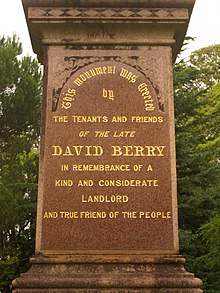Landlord

A landlord is the owner of a house, apartment, condominium, land or real estate which is rented or leased to an individual or business, who is called a tenant (also a lessee or renter). When a juristic person is in this position, the term landlord is used. Other terms include lessor and owner. The term landlady may be used for female owners, and lessor applies to both genders.
History
The concept of a landlord may be traced back to the feudal system of manoralism (seignorialism), where a landed estate is owned by a Lord of the Manor (mesne lords), usually members of the lower nobility which came to form the rank of knights in the high medieval period, holding their fief via subinfeudation, but in some cases the land may also be directly subject to a member of higher nobility, as in the royal domain directly owned by a king, or in the Holy Roman Empire imperial villages directly subject to the emperor. The medieval system ultimately continues the system of villas and latifundia of the Roman Empire.[1]
Owner and tenant
A rental agreement, or lease, is the contract defining such terms as the price paid, penalties for late payments, the length of the rental or lease, and the amount of notice required before either the homeowner or tenant cancels the agreement. In general, responsibilities are given as follows: the homeowner is responsible for making repairs and performing property maintenance, and the tenant is responsible for keeping the property clean and safe.
Many owners hire a property management company to take care of all the details of renting their property out to a tenant. This usually includes advertising the property and showing it to prospective tenants, negotiating and preparing the written leases, and then, once rented, collecting rent from the tenant and performing repairs as needed.

In the United States, homeowner–tenant disputes are primarily governed by state law (not federal law) regarding property and contracts. State law and, in some places, city law or county law, sets the requirements for eviction of a tenant. Generally, there are a limited number of reasons for which a landlord or landlady can evict his or her tenant before the expiration of the tenancy, though at the end of the lease term the rental relationship can generally be terminated without giving any reason. Some cities, counties, and States have laws establishing the maximum rent a landlord can charge, known as rent control, and related eviction. There is also an implied warranty of habitability, whereby a landlord must maintain safe, decent and habitable housing, meeting minimum safety requirements such as smoke detectors and a locking door.
Rental investment
Net income received, or losses suffered, by an investor from renting of one or two properties is subject to idiosyncratic risk due to the numerous things that can happen to real property and variable behavior of tenants.[2]
Rental properties can either be paid for monthly or annually depending on the agreement between the landlord and the tenant and is always included in the lease agreement and this is one of the factors that a tenant considers before moving in. A landlord can also decide to collect a security deposit or move-in fee which can also be a consideration for the tenant. Many factors including city/state regulations can drive the landlord to choose one over the other.
Licensed victualler
In the United Kingdom, the owner and/or manager of a pub, or public house, is usually called the "landlord/landlady", and often, strictly incorrectly, "publican", the latter properly the appellation of a Roman public contractor or tax farmer. In a more formal situations, the term used is licensed victualler or simply "licensee".[3] A female landlord can either be called a landlady or simply landlord.
The Licensed Trade Charity, formed in 2004 from the merger of the Society of Licensed Victuallers and Licensed Victualler's National Homes,[4] exists to serve the retirement needs of Britain's pub landlords. The charity also runs three private schools in Ascot and Reading in Berkshire and Sayers Common in Sussex. As well as having normal full fee paying students, Licensed Victuallers' School in Ascot provides discounted education prices for the children of landlords and others in the catering industry.
References
- ^ Faculty.history.wisc.edu
- ^ Tara Siegel Barnard (March 29, 2013). "Rental Investment May Seem Safer Than It Really Is". The New York Times. Retrieved March 30, 2013.
- ^ "Dictionary.com". Retrieved 2008-07-19.
- ^ "Society of Licensed Victuallers, registered charity no. 230011". Charity Commission for England and Wales.
